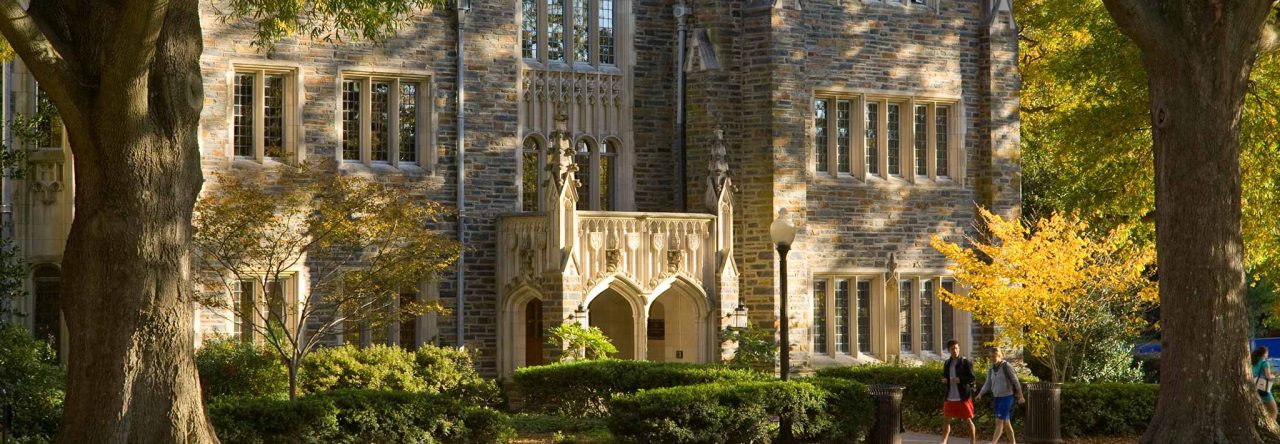As the university’s fiduciary, the Board of Trustees is responsible for Duke’s long term health, overseeing and aligning its strategic direction, educational policy, finances and operations with the mission of the university. Through its two affiliated boards, it oversees the Duke University Health System and DUMAC, Inc., the university’s investment company. The Board of Trustees uses historical documents and proclamations to guide its fiduciary responsibilities. These same documents form the foundation for the Duke Values and Culture.
Duke University Mission Statement
The current Mission Statement was adopted by the Board of Trustees in 1994, and revised in 2001. This statement calls upon faculty, staff and students to engage in the many facets of life at Duke while always striving for the highest standards in intellectual pursuits and interactions with one another.
“By pursuing these objectives with vision and integrity, Duke University seeks to engage the mind, elevate the spirit, and stimulate the best effort of all who are associated with the University; to contribute in diverse ways to the local community, the state, the nation and the world; and to attain and maintain a place of real leadership in all that we do.”
The James B. Duke Indenture of Trust
Among the provisions of James B. Duke’s Indenture of Trust was an educational institution to be known as Duke University, to the building and support of which he made provision at the time of execution of the Indenture and later by additions thereto by the operation of his will. Article SEVENTH of the Indenture contains a reference to Mr. Duke’s expectations and aspirations for Duke University as a place of distinction:
“I have selected Duke University as one of the principal objects of this trust because I recognize that education, when conducted along sane and practical, as opposed to dogmatic and theoretical, lines, is, next to religion, the greatest civilizing influence. I request that this institution secure for its officers, trustees, and faculty men of such outstanding character, ability, and vision as will insure its attaining and maintaining a place of real leadership in the educational world, and that great care and discrimination be exercised in admitting as students only those whose previous records show a character, determination, and application evincing a wholesome and real ambition for life. And I advise that the courses at this institution be arranged, first, with special reference to the training of preachers, teachers, lawyers and physicians, because these are most in the public eye, and by precept and example can do most to uplift mankind, and second, to instruction in chemistry, economics, and history, especially the lives of the great of the earth, because I believe that such subjects will most help to develop our resources, increase our wisdom and promote human happiness.”
Amended and Restated Charter of Duke University
The Restated Charter of Duke University was adopted by the Board of Trustees of Duke University on September 26, 1986, and was filed with the Secretary of State of North Carolina on January 27, 1987. Since then, several amendments have been adopted and filed, the most recent of which was in 2016. The Charter defines the legal status of Duke University and the governing authority of its Board of Trustees. This document specifically states governing powers of the Board of Trustees and affirms requirements to abide by applicable laws and regulations.
Bylaws of Duke University
The Bylaws of Duke University describe the structural means – governing boards and committees, leadership positions and faculty – through which the principle aims will be pursued.
“The University therefore pursues the following aims: to foster a lively relationship between knowledge and faith; to advance learning in all lines of truth; to defend scholarship against all false notions and ideals; to develop a love of freedom and truth; to promote a respectful spirit of dialogue and understanding; to discourage all partisan and sectarian strife; and to further the advancement of knowledge in service to society. The affairs of the University will always be guided by these ends.”
